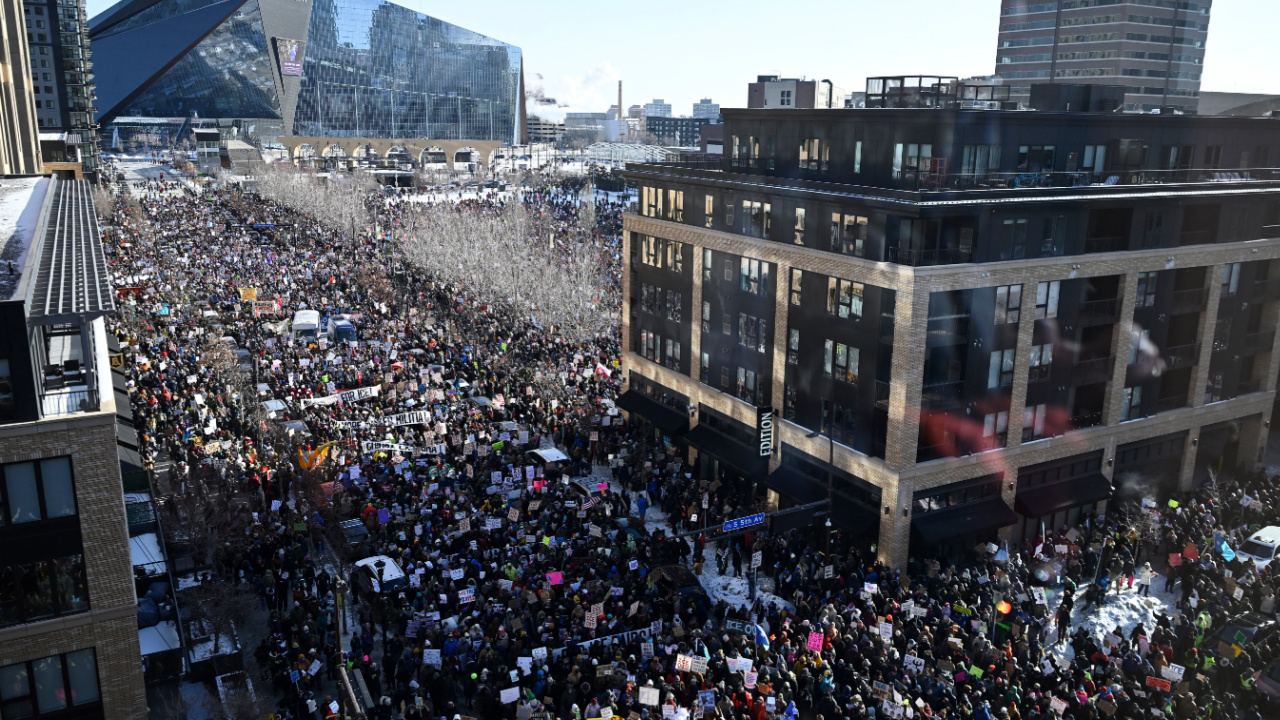How Colony Ridge Became a Housing Nightmare for Latinos
Homeownership has become unattainable for many in recent years. CNN cites that “38.6% of the median household income is required” to meet monthly payments. With the publication noting this has made housing “the least affordable it’s been since 1984.”
That’s for United States citizens. For undocumented immigrants, the dream of owning a home encounters new difficulties. They need proper government documentation and credit scores, making buying a home nearly impossible for most. That’s where Colony Ridge comes in.
Colony Ridge is a community development located in Texas that is more than 10,000 acres outside of Houston. Also called Terrenos Houston, per the New York Post, it has recently attracted much controversy due to alleged crime and poor living conditions. According to Texas Public Radio, many claim it has become a “safe haven for crime, drug cartels and undocumented immigrants.”
Colony Ridge offers land for low monthly payments, allowing people to achieve their American Dream
The New York Times cites the development offers land at deeply inexpensive rates. Plots of land can be found for monthly payments as low as $500, the publication adds.
Billionaire developers and brothers Trey and John Harris established Colony Ridge about 15 years ago, per the New York Post.
The developers are also said to offer potential residents “unconventional loans” to ease the home-buying process, The New York Times adds. Because of the ease of home buying in the area, people who thought they’d never own a home have flocked to the site. Many of those of Latino origin or descent.
So, what exactly is needed for the “unconventional” loan approval? Reports note that the Harris brother’s company offers “direct financing to buyers” so long as they have an Individual Taxpayer Identification Number from the Internal Revenue Service.
The New York Times shared the story of a 40-year-old Honduran migrant who got an I.T.I.N loan. The loan amount was $200,000 with about $60,000 down payment. The downside? These loans have a higher interest rate.
With higher interest rate payments comes the difficulty of maintaining them. As The New York Post notes many of the plots end in foreclosure. The publication cites that “at least 97 percent of the foreclosures in Liberty County have been located inside Colony Ridge.”
Colony Ridge’s rapid growth has caused the community’s resources to be stretched thin and, in some cases, nonexistent
It is reported that due to the influx of residents in the area, local resources have struggled to keep up with the growth.
Stephen McCanless, the Cleveland Independent School District superintendent, told The New York Times that he was told by developers “to expect 150 new students a month.” The district has amassed around 11,800 new students over three years. Eighty-five percent of those have been of Latino origin.
McCanless tells the publication that the county has allocated about $12 million for portable classrooms. He also shared his concerns over whether or not that kind of rapid growth is healthy for any community overall.
Another issue many are running into is the lack of electricity and sewage, something the developers noted automatically comes with the lot. Keilah Sanchez and her sister Suellen Sanchez told The New York Post that their experience with Colony Ridge has been so frustrating that they launched the website Terrenos Houston Demanda.
Sanchez asserts, “They’re exploiting people here by not telling people the truth when they show interest in buying here.”
She adds that what they were told they would get and what they received were vastly different.
“Nothing the sales guy said was true like he said it had never flooded there when it did. We were told the lot was turn-key but we had to go buy our own electric pole and figure out how to put it up. They told my sister she wasn’t paying for her lot when she was. It was one endless money pit,” she exclaimed.
Texas Republicans want to end Colony Ridge, but current state laws don’t support any legislative movement
In a letter sent to Texas Governor Greg Abbott, four local Republican representatives urge him to place Liberty County under a conservatorship that’ll “clean up and clean out Colony Ridge.” Following the letter’s publication, Abbott released what he’d focus on during an upcoming special legislative session.
One of his key focus points? Possible legislation over the “public safety, security, environmental quality, and property ownership in areas like the Colony Ridge development.”
But, with all the pleas from Texas Republicans, to move forward with any changes to Colony Ridge, they’ll need laws in place — something they currently don’t have per a county judge.
Judge Jay Knight tells The New York Times that the outcome would have been different if Colony Ridge had developed at a slower pace. The local community could have adjusted to the changes at a healthy rate.
But since that wasn’t what happened, the county doesn’t have as much control as it would have legally needed to curb the growing pains. Knight claims that state laws don’t allow counties to “regulate development,” leaving many residents and lawmakers in limbo.




